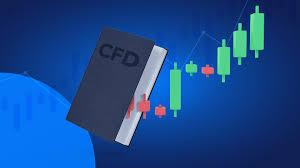CFD Trading: A Comprehensive Guide for Beginners
Contracts for Difference (CFD) trading is a popular way to invest in the financial markets. CFDs allow traders to speculate on the price movements of different assets, such as stocks, currencies, and commodities, without owning the underlying assets. If you’re new to CFD trading, it can be overwhelming to navigate through the different markets and strategies. In this comprehensive guide, we’ll provide you with all the essential information you need to know before delving into cfd trading.
What are CFDs?
CFDs are complex financial instruments that allow traders to speculate on the price movement of an asset without owning the underlying asset. CFDs are traded on margin, which means that traders only need to put up a small percentage of the total value of the contract to open a position. The profit or loss that traders make on a CFD trade is based on the difference between the opening and closing price of the underlying asset.
Advantages of CFD trading
One major advantage of CFD trading is leverage. The use of leverage can amplify the potential profits of a trade, but it also increases the potential losses. Another advantage is the ability to trade different markets, such as stocks, forex, and commodities, from one trading platform. CFDs also provide traders with flexibility, as positions can be opened for short or long-term trades.
Risks of CFD trading
CFD trading carries a high level of risk due to the use of leverage. Traders can lose more than their initial investment if the market moves against their position. It’s important to have a risk management strategy in place, such as stop-loss orders, to limit potential losses. Additionally, CFD trading can be complex and requires a deep understanding of the markets and trading strategies.
CFD trading strategies
There are various trading strategies that traders can use when trading CFDs. Some popular strategies include technical analysis, fundamental analysis, and trading news events. Technical analysis involves using charts and indicators to identify patterns and price trends. Fundamental analysis involves studying company financial statements, economic data, and industry trends. Trading news events involves anticipating market movements after significant news announcements.
Choosing a CFD broker
Choosing a reputable CFD broker is crucial to the success of your trading. Look for brokers that are regulated by reliable financial authorities and offer competitive spreads and fees. Good customer support and easy-to-use trading platforms are also essential. Practice trading with a demo account before risking your real money to get a feel for the trading platform and strategy.
Conclusion:
CFD trading can be a rewarding way to invest in financial markets, but it requires a deep understanding of the markets, trading strategies, and risk management. With this comprehensive guide, you have all the essential information you need to get started in CFD trading. Remember to always practice with a demo account before risking real money, and choose a reputable broker that meets your trading needs. As with any investment, never invest more money than you can afford to lose.

